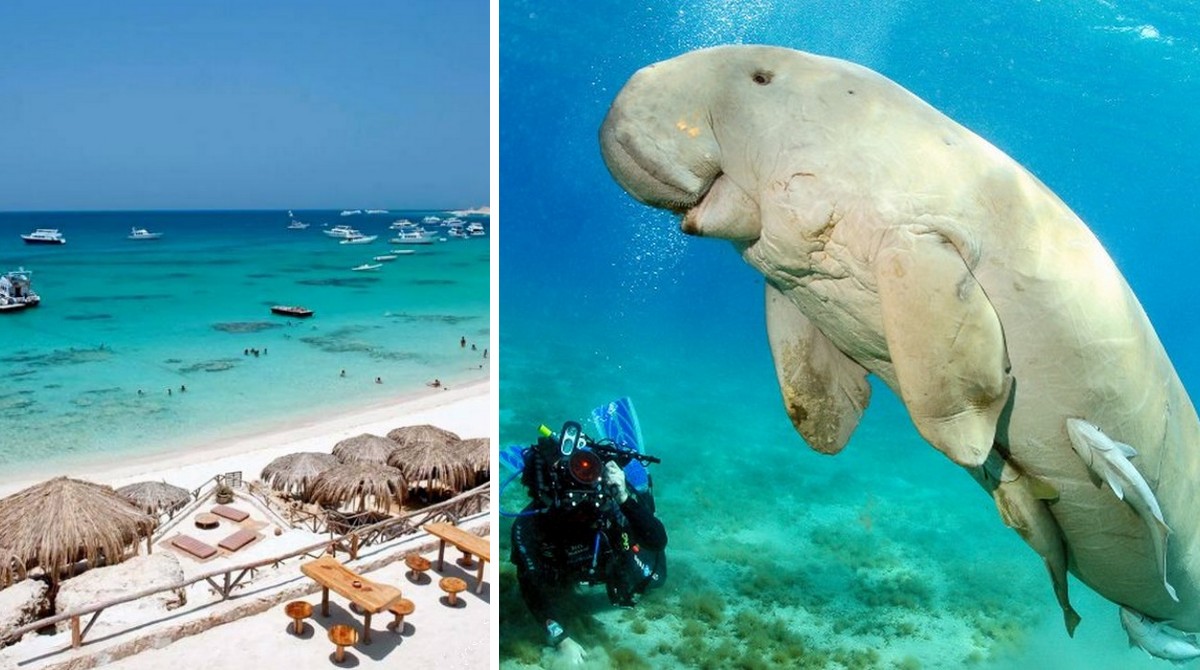In the resort town of Hurghada, tourists go out on boats to the Red Sea to see with their own eyes the incredible – a marine mammal that has practically disappeared from the planet – the dugong, whose second name is “mermaid”. Meanwhile, authorities have warned of a $500 fine and jail time for any violations of the local wildlife.
As reported by the Egyptian publication El Watan, the dugong has not left the beaches of the Egyptian resort for several weeks, much to the delight of vacationers. Tourists observe it in its natural environment, take pictures and even try to pet it. As it turned out, sea “mermaids” are rare marine mammals that remain an important attraction of the beaches of Hurghada and a source of national wealth, and also bring significant income to the local economy. The annual income that the tourism sector receives from the presence of “mermaids” in the waters of Egypt is estimated at $1.2 million per year.
According to Dr. and marine biology expert Ahmed Shawki, the only marine mammals that feed on seaweed are dugongs. Their presence is associated with shallow coastal environments, especially in the southern part of the Red Sea. The expert warned that this species of animal is under threat of extinction due to the slow rate of reproduction: the gestation period reaches 13-14 months. At the same time, only one cub is born. These are leisurely creatures from the siren class, they move slowly, feeding on vegetation from the bottom. Currently, they are listed in the International Red Book, so their fishing is strictly prohibited.
As the expert noted, the largest concentration of “mermaids” in the world lives in the north of Australia – there their number reaches 75 thousand, in the Persian Gulf they are much smaller – only about 7.5 thousand individuals. As for the Red Sea, their number is small there, and they do not move in groups or pairs, as in other regions, but alone.
In general, the dugong is one of the most important tourist attractions in the Mursi Alam and Hurghada area, and environmental organizations work to raise awareness of its conservation and protect it from human pressure and poaching.
Dr. Tamer Kamal, director of the Red Sea Reserves, explained that catching these sea creatures is a violation of Law No. 4 on Environment and Reserves, which prohibits approaching or touching them with hands or any objects. Violators face a fine of up to $500,000, as well as prison terms.
Background: Dugong, more commonly known as “mermaid”, is a large marine mammal 2.5 to 3 meters long that feeds on seagrass using its large lips. It weighs up to 600 kg. These animals are native inhabitants of the Red Sea and are on the verge of extinction due to human fault. Long ago, dugongs were hunted for meat, the taste and texture of which reminded them of tender veal. In Egypt, the dugong has been known for a long time. Drawings depicting the hunting of these animals have been preserved since the time of the pharaohs. And in the Middle Ages, dugongs were most often depicted as mermaids. The lifespan of a “mermaid” is up to 70 years.

